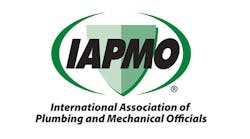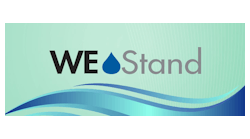Latest from Codes
Sponsored

ONTARIO, CA — The International Association of Plumbing and Mechanical Officials (IAPMO®) concluded the technical committee meeting toward the development of the 2023 edition of the Water Efficiency and Sanitation Standard (WE•Stand), previous editions of which are American National Standards.
Committee Work
The technical committee, consisting of a broad coalition of industry experts—installers, inspection officials, contractors, engineers, and manufacturers—considered public comments to amend the WE•Stand in advance of the release of the 2023 edition. The actions to accept, modify, or reject these comments were electronically balloted to the technical committee for formal voting between June 5-26. The results of the votes will be made public in the Report on Comments to be published for review in September.
The WE•Stand technical committee met and considered public comments seeking to amend the code in such areas as: temporary connections to plumbing equipment for testing; general requirements for plumbing and mechanical systems; maximum flow rates for fixture fittings; bath and shower diverters; shower valves; reverse osmosis water treatment systems; water consumption rates for combination ovens; steam sterilizers used in medical and laboratory facilities; leak detection and control devices; backflow protection; irrigation control systems; the Water Demand Calculator (WDC); permit requirements for urine reuse systems; gradient of horizontal urine diversion piping; vapor backflow seals; urine storage tanks; maintenance plans for urine diversion systems; onsite gray water treatment systems; rainwater storage tanks; maximum hot water system ratios; minimum water quality for potable rainwater catchment systems; potable rainwater catchment system materials; disinfection devices; onsite wastewater treatment systems for direct potable water reuse; and water efficiency rating systems.
Get Involved
IAPMO urges its members and other interested parties to get involved in the development process to ensure effectiveness in preserving the public health, safety, and welfare. Manufacturers, potential users of the standard, installers and maintainers, labor representatives, design professionals, enforcing authorities, and consumers all benefit from a cooperative effort in developing codes and standards.
For specific information about the WE•Stand technical committee, please contact Taylor Duran at 909/218-8126 or e-mail your question to [email protected].


